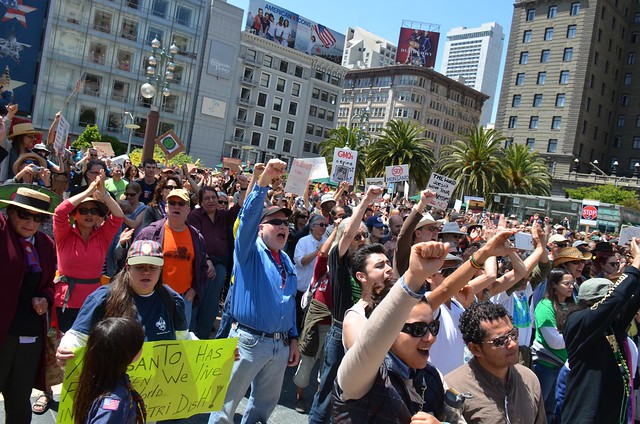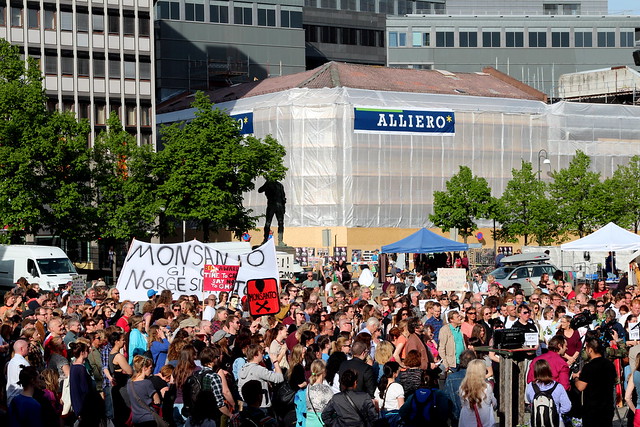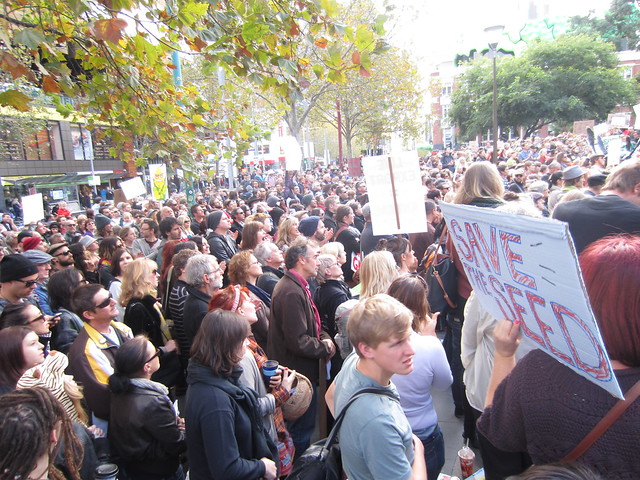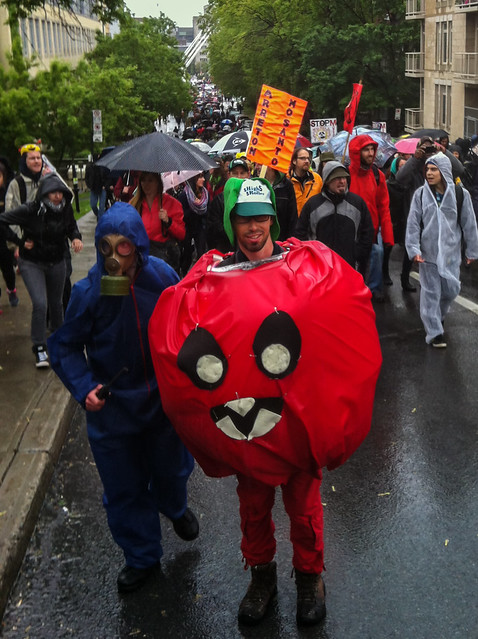June 2013
 |
| March against Monsanto rally, San Francisco. CC Photo by Steve Rhodes on Flickr |
Two rather momentous things happened in
May 2013.
The first involved Monsanto's decision
to discontinue its lobbying for more cultivation of GM crops in
Europe.
This announcement in itself wasn't
too surprising: other biotech giants such as Bayer CropScience, BASF
and Syngenta had already come to similar decisions, and the rising
concern about GM foods in America is probably enough to deal with
without tackling Europe at the same time. Monsanto is, instead,
content to concentrate on supplying GM animal feed which is much
bigger business, has largely escaped the dreaded labelling, and whose
end-consumers who are a lot less fussy about what they eat than
humans are.
The 'momentous' part of Monsanto's
decision is the reason given: its spokesman said
“The reason is, among other things, low demand of the farmers”.
It's no
longer the environmentalists, greens, Luddites, idealists,
middle-classes, excessive regulation etc. previously being blamed:
it's the farmers themselves.
Monsanto's announcement came just after
the first momentous event. This was a world-wide 'March
Against Monsanto' on 25 May.
An estimated two million people from 436 cities, 58 countries and six continents hit the streets in protest against Monsanto's control of the global food system, and its threat to our food safety, biodiversity and food sovereignty.
 |
| Oslo. CC Photo by Caroline Hargreaves on Flickr |
Demonstrations against Monsanto aren't
new. However this one was
unprecedented in its scale, and in the fact that it had been
organised entirely at grass-roots level. No national or
international environmental bodies were involved, yet the world-wide
awareness generated was clearly second to none. The multiple events
involved ordinary folk from all walks of life who had been brought
together through a Facebook page created only three months
previously. Unlike previous such rallies, the marches were uniformly
peaceful. March Against Monsanto's founder and organiser described
the turnout as “empowering and inspiring”.
 |
| Melbourne. CC photo by OccupySmallStreet on Flickr |
GM/Monsanto sceptics have,
of course, noted the strategic timing of the Company's announcement
of its withdrawal from efforts in Europe. The March Against Monsanto
was making things just too hot to be worth handling: a situation
which called for a quick bucket of cold PR. Neither did it escape
the notice of sceptics that Monsanto's press release was immediately
misquoted all over the world: good PR can rely on bad journalism to
put out the message it wants, rather than what it actually
said (most media reports said something along the lines of 'Monsanto
has stopped the marketing of GMO seeds in the EU').
Can we expect Monsanto to
lie low for a few years and then come charging back into Europe?
 |
| Montreal. CC photo by Lea-Kim Chateauneauf on Flickr |
Given that much the same
sort of 'withdrawal' announcement was made by the Company when its
terminator technology was proving a PR nightmare, and again when
everyone in the wheat business made it clear they wouldn't
countenance GM wheat (both of which have continued to be developed by
Monsanto despite suggestions to the contrary), the answer to the
above question is clearly YES.
OUR COMMENT
It would be a good idea to
keep your finger on the pulse of where the March Against Monsanto
goes next. Check out the Facebook page and website of 'Scotland Against Monsanto'.
SOURCES:
- Sean Poulter, American 'Frankenstein food' company pulls plug ..., Mail Online, 3.06.13
- F. William Engdahl, Monsanto's Deception Game On GMO In Europe, http://rense.com
- Millions march against GM crops, Guardian, 26.05.13
- Mainstream, Organic Consumers Association, May 2013
- OCA Calls for Immediate Moratorium on Open-Air Field Testing of GE Crops, Organic Consumer Association Release
No comments:
Post a Comment
Thanks for your comment. All comments are moderated before they are published.